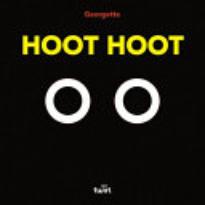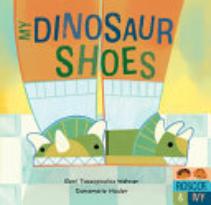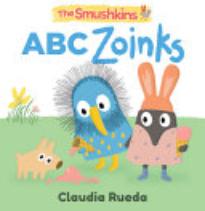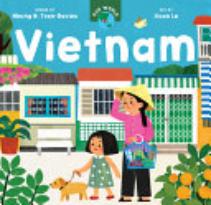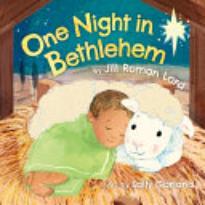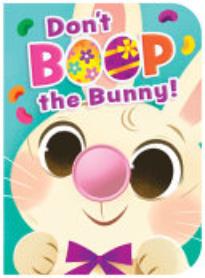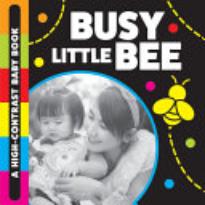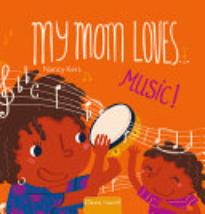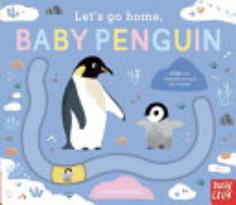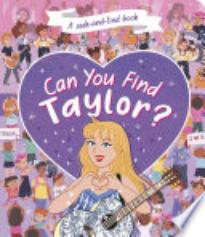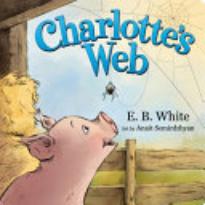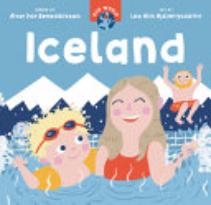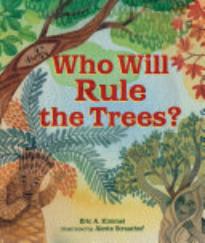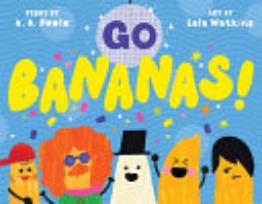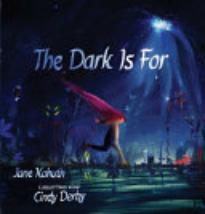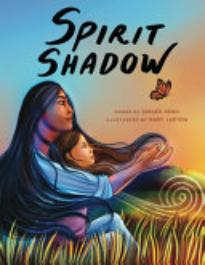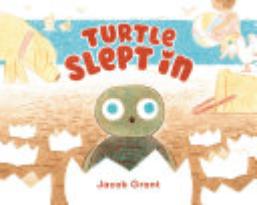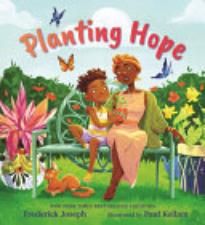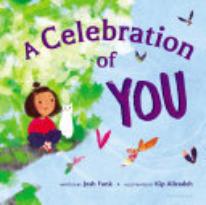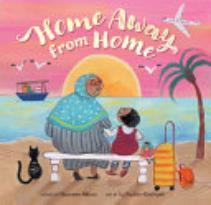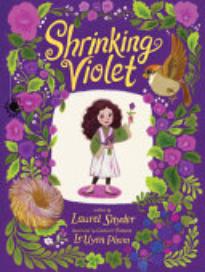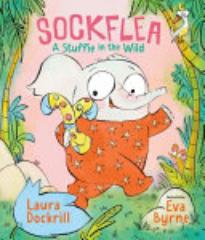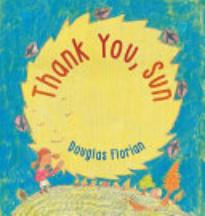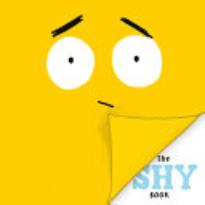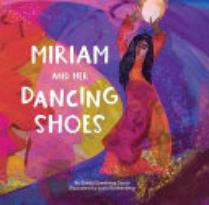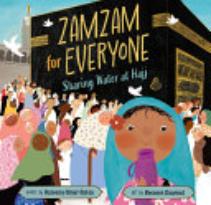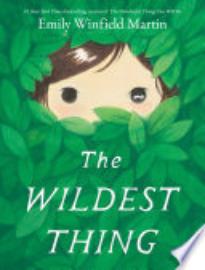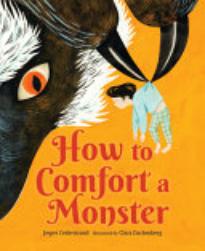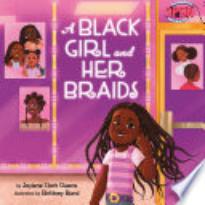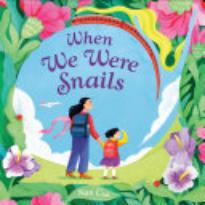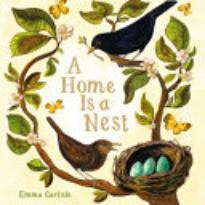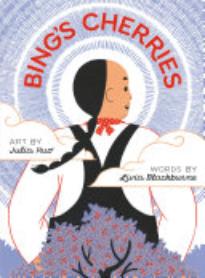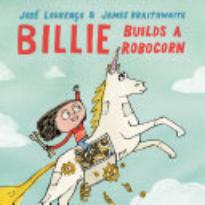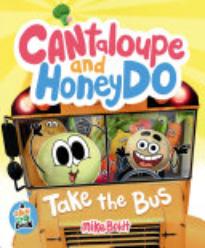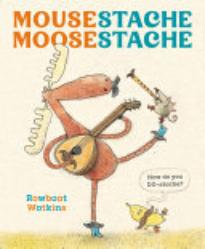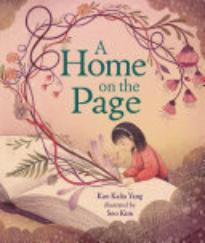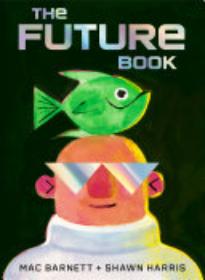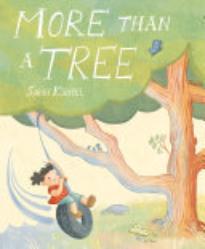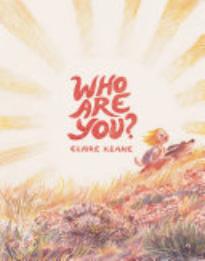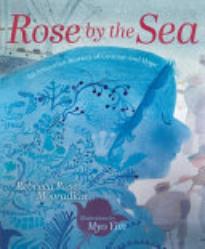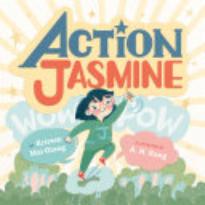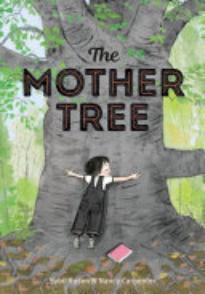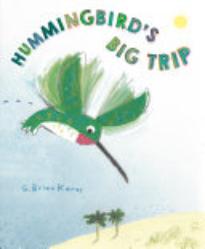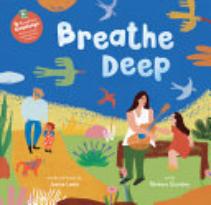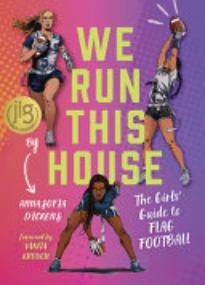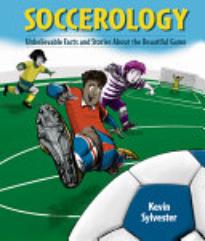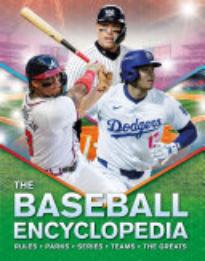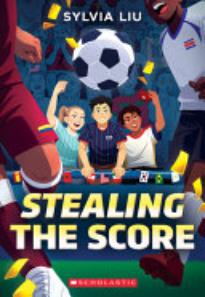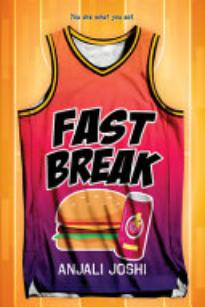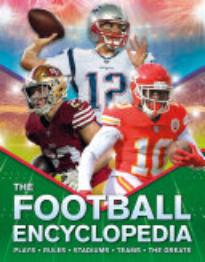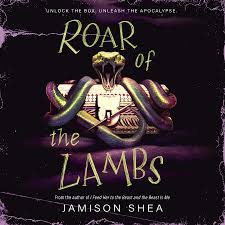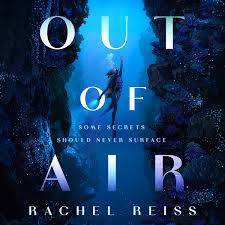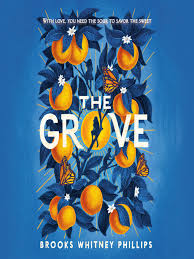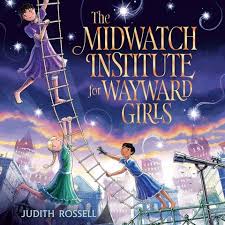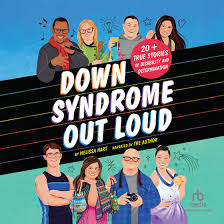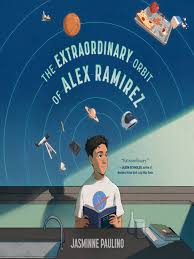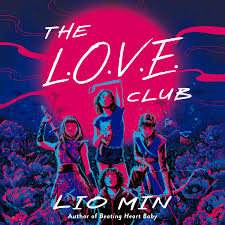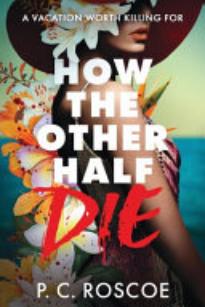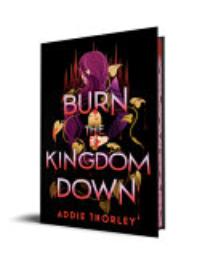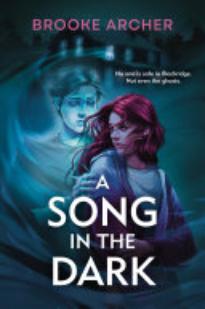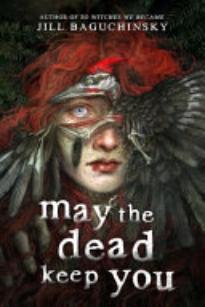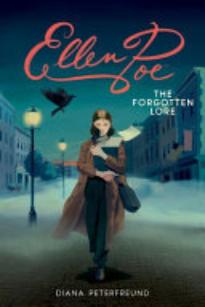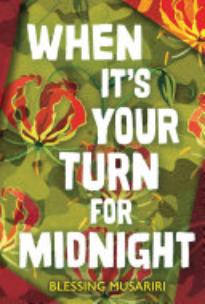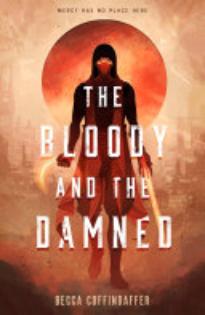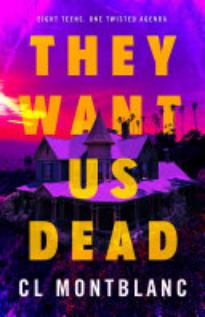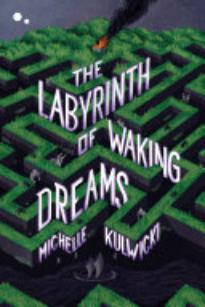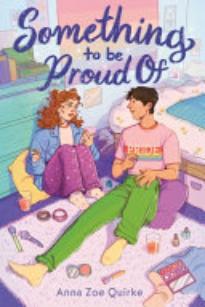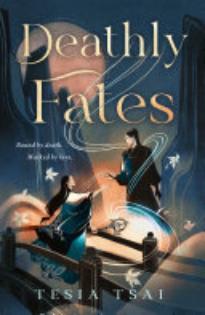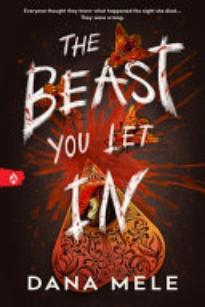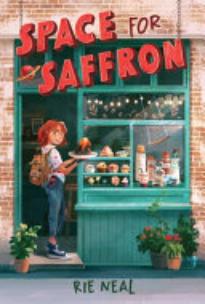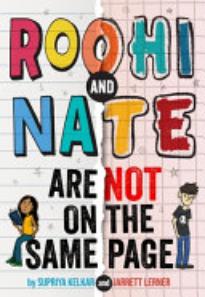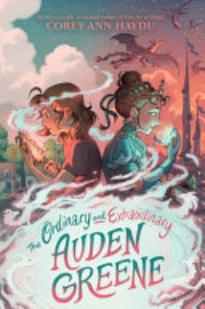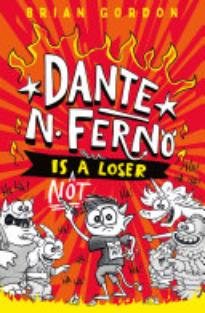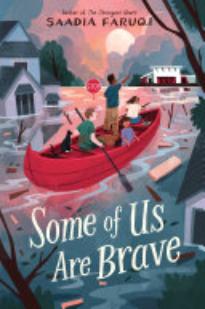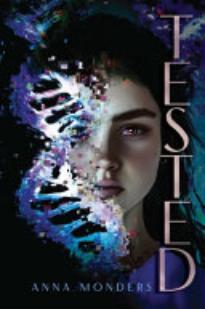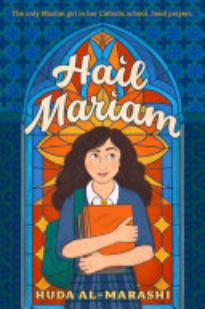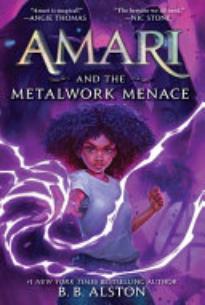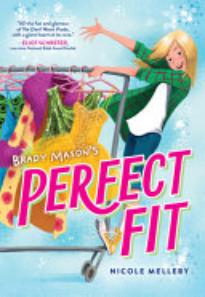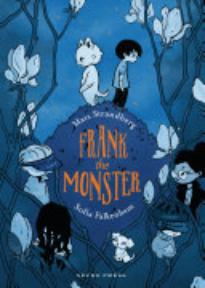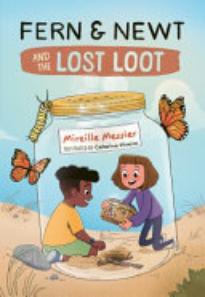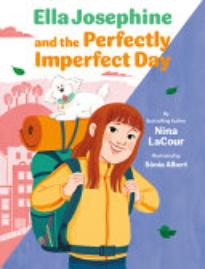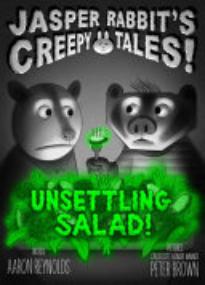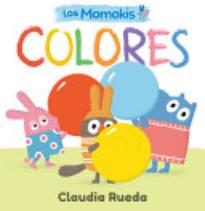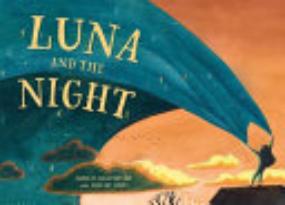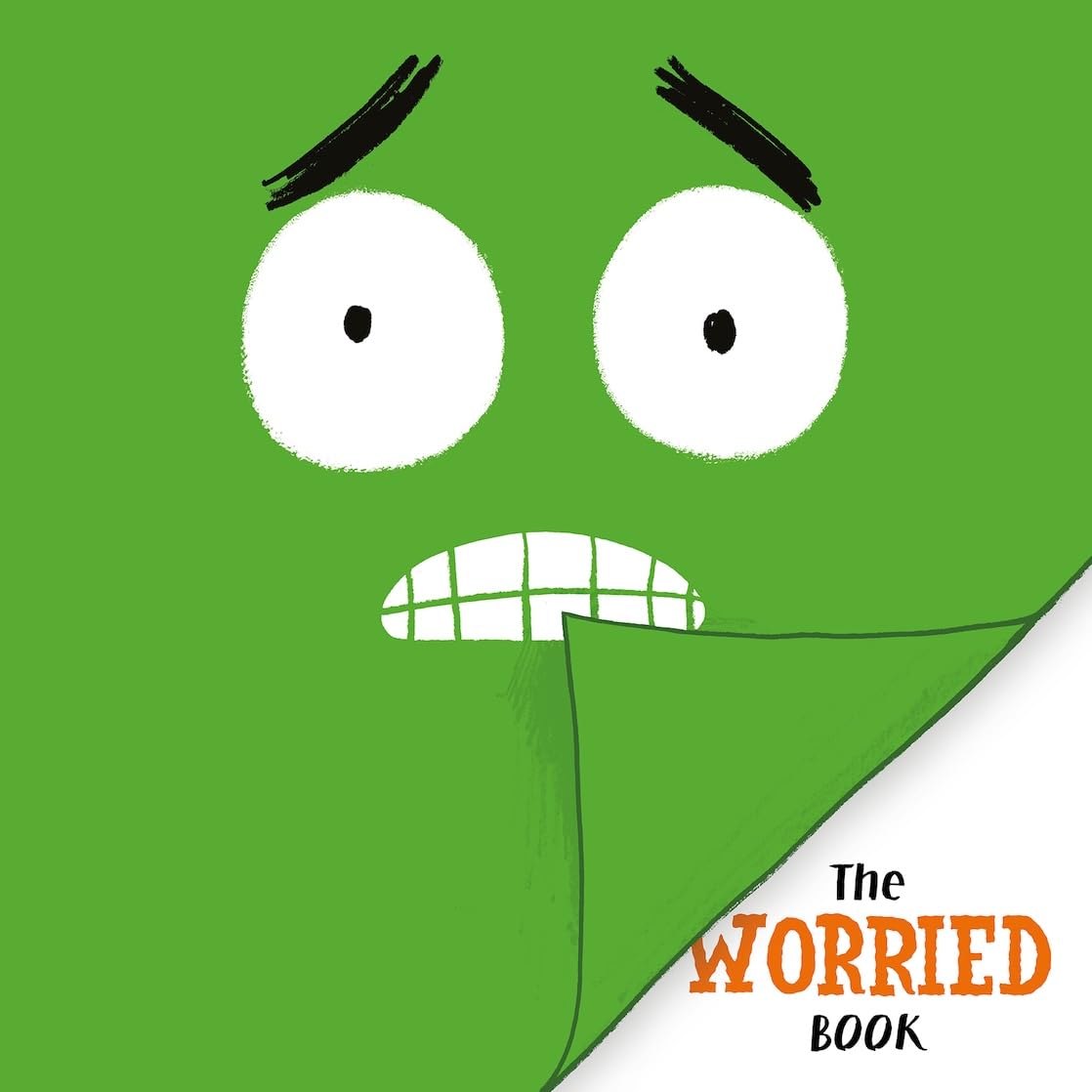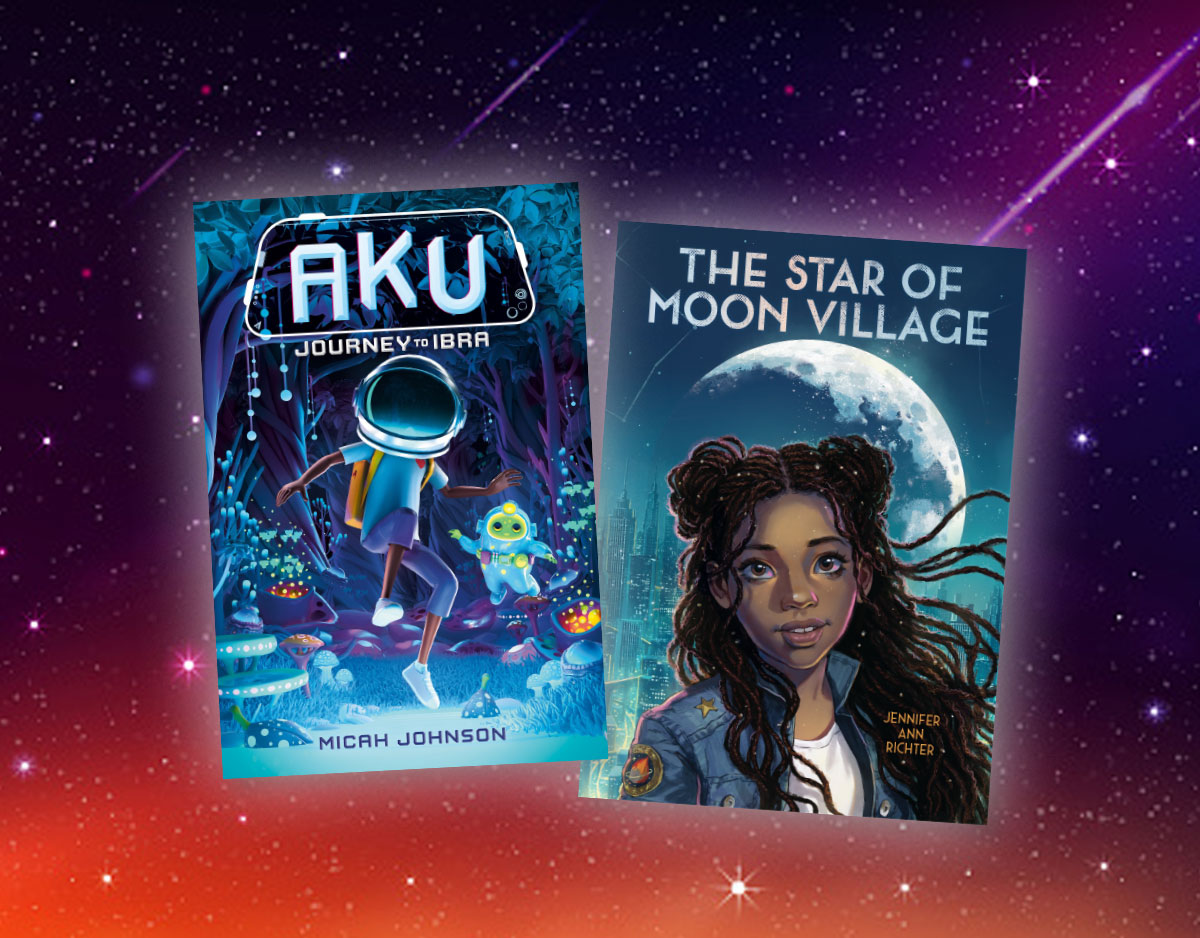Related
PREMIUM
Hoot Hoot
Perfect for story hours and one-on-one reading, this will be a crowd-pleasing choice on library shelves.
A strong addition from a neurodivergent author and illustrator that will resonate with many children and families.
PREMIUM
The Smushkins: ABC Zoinks
A strong primer for early ABC learning and a recommended purchase for most libraries.
A joyful and informative introduction to the Chinese New Year that belongs on library shelves.
PREMIUM
One Night In Bethlehem
A suitable purchase if more religious board books are needed in the collection.
A striking blend of high-contrast art and real photography that makes this a first purchase for most collections.
PREMIUM
My Mom Loves . . . Music!
An additional purchase for libraries seeking books that highlight mothers.
A first purchase wherever Taylor Swift is popular, which is to say, everywhere
PREMIUM
Charlotte’s Web: Board Book
Although the original chapter book remains a beloved work of literature, this simplified adaptation is one that libraries can comfortably skip.
PREMIUM
Who Will Rule the Trees?
Those libraries seeking modestly religious creation stories may find this a quiet, sturdy edition to the shelves.
PREMIUM
Go Bananas!
Pull this one out when the classroom or story hour needs a re-set and some giggles.
PREMIUM
Spirit Shadow
An additional purchase for collections seeking more Indigenous representation.
PREMIUM
Turtle Slept In
Fans of this prolific author/illustrator’s work as well as children who love nature and seashore life will enjoy this short, beautifully illustrated story.
PREMIUM
Planting Hope
This vibrant picture book would be a good selection for libraries, with a celebration of hope that is always welcome.
This wonderful book would be a solid addition to any library for its reminder for all ages to appreciate the small things.
PREMIUM
Home Away from Home
Sweet celebration of faraway family, the beauty of culture, and the common experiences Nuha and Jadda share makes this tale a standout. Recommended for all collections.
PREMIUM
Shrinking Violet
This title is a great addition to social-emotional learning (SEL) collections, offering a dynamic and unique approach to discussing anxiety, inner strength, and resilience with young readers during a fun and compelling read-aloud.
PREMIUM
Sockflea: A Stuffie in the Wind
This book is a surefire hit for story hours, providing laugh-out-loud entertainment contained in an adorable bundle of elephant energy.
An excellent addition to any library’s poetry collection and good for teaching about the gifts of the natural world.
PREMIUM
The Shy Book
A kind introduction to the challenges of being shy; it will help those who are dealing with that and also those around them.
PREMIUM
Miriam and Her Dancing Shoes
A nice addition to libraries where religious stories are of high interest, but perhaps not for wider secular audiences.
This joyful collaboration will be equally enjoyed by children who already know about Hajj and by those who are learning of it for the first time.
PREMIUM
The Wildest Thing
An excellent read-aloud for young children at home with a parent or older sibling, this book inspires a love of nature and a healthy disregard for all that is prim and proper.
PREMIUM
How to Comfort a Monster
A poignant tale of friendship and feelings, and an appropriate addition to picture book collections.
PREMIUM
A Black Girl and Her Braids
A great book for cultural education and appreciation. This book will be of interest to all collections.
PREMIUM
When We Were Snails
A touching celebration of the love between parent and child even during time apart, and especially good for children who may be experiencing separation.
PREMIUM
Bing’s Cherries
A beautifully told and authentically grounded tale honoring the immigrant behind the famous Bing cherry and celebrating Chinese American resilience and contribution.
PREMIUM
Billie Builds a RoboCorn
This story packs a punch. It’s great for those looking to beef up their SEL sections.
A good segue to reassurance for the very young, but this may be too specific for a wider audience.
PREMIUM
Mousestache Moosestache
A fun addition to any humor collection. This is great for a lap sit, or for use in small groups.
PREMIUM
A Home on the Page
A powerful story with beautiful illustrations not only calls out the hate that is in the world today but also provides a message of hope for those who are in search of a creative outlet to find their proverbial home. Recommended.
PREMIUM
The Future Book
PreS-Gr 3–This tongue-in-cheek guidebook from the future reveals all kinds of silly surprises about what the future will be like...
This book would be an excellent addition to any library’s picture book collection, especially those needing stories of dealing with a loss.
PREMIUM
Who Are You?
Exploring the world will help one find oneself. Best shared with groups of older elementary children, or in quiet one-on-one readings with younger children.
An essential purchase; Mooradian and Yim have created a powerful book to share with care. It opens space for conversations about resilience, identity, and remembrance and it shows how storytelling helps us honor the past while finding beauty in survival.
PREMIUM
Action Jasmine
This is a good choice for libraries looking to add to their picture book collections, particularly the social-emotional learning shelves.
PREMIUM
The Mother Tree
A moving depiction of the importance of trees and forests, this is highly recommended for all collections.
PREMIUM
Hummingbird’s Big Trip
A heartwarming and informative story that reassures children that even the smallest creatures can overcome big challenges.
PREMIUM
Breathe Deep
A useful resource for programs that encourage mindfulness and self-calming skills for young children.
A perfect introduction to this popular and fast-growing sport, with a particular focus on girls, recommended for middle and high school collections.
A fun, informative fan companion for newbies or hardcore fans alike, a must have for elementary and middle schools.
PREMIUM
The Baseball Encyclopedia
Whether for newbies to the game or deep-roots fans brushing up on details, this is a must for elementary and middle schools.
PREMIUM
Stealing the Score
A soccer-filled mystery adventure, a fun read for upper elementary and middle school fans of the “beautiful game.”
PREMIUM
Fast Break
A contemporary story that centers athletic performance and health, this will engage striving elementary and middle school readers.
A handy reference or a comprehensive overview, this football compendium will be deservedly popular in virtually any school.
PREMIUM
Roar of the Lambs
Despite some technical flaws, Shea’s (I Feed Her to the Beast) fantasy adventure offers a compelling exploration of temptation, power, and friendship. It will be at home in any teen audio collection.
PREMIUM
Out of Air
An exciting blend of treasure-hunting deep-sea adventure and science fiction thriller that will leave readers breathless. Perfect for fans of Courtney Gould.
PREMIUM
The Grove
Phillips’s sad yet hopeful debut is suitable for young adult audiobook collections that feature historical and realistic fiction. Immersive and thoughtful, this is recommended for listeners seeking a haunting coming-of-age story with a strong sense of place.
The quirky dialogue and fast-paced plot will have young readers running right alongside Maggie, piecing clues together to try and solve the mystery before it’s too late.
This vibrant biographical collection of individuals with Down syndrome is both insightful and informative, making it a suitable addition to any young adult nonfiction audiobook collection.
For fans of Christina Li’s Clues to the Universe, this is a strong addition to middle school collections.
Enhanced with audio narration that perfectly conveys the characters’ emotional arcs, Min’s (Beating Heart Baby) sophomore novel is a valuable addition to any young adult audio collection.
PREMIUM
Burn the Kingdom Down
Seasoned fantasy readers will find this underwhelming, but those simply looking to escape into a different world may still enjoy the experience. A secondary purchase.
PREMIUM
A Song in the Dark
A great recommendation for readers who enjoyed Ginny Myers Sain’s When the Bones Sing, realistic portrayals of grief, and paranormal mysteries.
Hand this to mature readers interested in gothic horror and who will be satisfied with an ending that doesn’t reveal all of its magical secrets.
A delightful and spooky read, especially for those who are into Wednesday on Netflix. This unputdownable book is highly recommended.
PREMIUM
When It’s Your Turn for Midnight
A brief, beautiful Zimbabwean novel about war and family, recommended for collections where literary YA fiction is in demand.
A must-have for teen libraries’ science fiction/dystopian fiction sections.
PREMIUM
The Gravewood
Addictive, atmospheric, and brimming with dark romance, this will leave readers craving more. Perfect for fans of Tracy Deonn’s Legendborn and The Vampire Diaries TV show.
PREMIUM
They Want Us Dead
Complete with a diverse cast of characters and a slow-burn romance, it will enthrall teens everywhere. A recommended purchase.
PREMIUM
Flirting with Murder
A cozy mystery that readers will delight in and devour, with all the vibes of Jesse Q. Sutanto’s Dial A for Aunties and Richard Osman’s Thursday Murder Club that teens could want.
Humor, heart, diversity, and pride abound in this vibrant, affirming tale. Highly recommended.
PREMIUM
Deathly Fates
Nonstop action will keep readers, especially those who enjoy episodic monster-of-the-week adventures, turning the pages.
PREMIUM
The Beast You Let In
Perfect for fans of YA supernatural horror. Recommended for public library YA and high school libraries.
PREMIUM
The Unruly Heart of Miss Darcy
A thoughtful and enticing romance, perfect for anyone searching for tales of hidden longing and true love.
PREMIUM
Space for Saffron
Readers sharing Saffron’s passion for STEM may enjoy this book, but the underdeveloped characters and Saffron’s shortage of endearing qualities give it limited appeal.
PREMIUM
The Aftermyth
Readers looking for more Greek-myth inspired fiction in the vein of Percy Jackson or Shana Targosz’s River of Spirits will love this series starter.
PREMIUM
Choir Grrrl
For older middle grade readers, this coming-of-age feminist story will inspire readers to find their own original voice.
An additional purchase where friendship stories circulate well.
An emotionally rich narrative of two girls facing tremendous stakes and learning how to trust themselves even in the chaos; a must-read.
PREMIUM
Dante N. Ferno Is NOT a Loser
Recommended for fans of the “Diary of a Wimpy Kid” and “Dogman” series.
PREMIUM
Some of Us Are Brave
Readers will root for these well-written protagonists with distinct points of view as they figure out how to face their fears and survive Hurricane Harvey; a great purchase for elementary and middle schools.
PREMIUM
Tested
This will appeal to fans of books centering strong, determined female characters who stand up against oppression, like Joelle Charbonneau’s The Testing or Sylvia Liu’s Hana Hsu and the Ghost Crab Nation.
PREMIUM
Hail Mariam
A refreshing and thought-provoking look at a preteen Muslim girl’s very relatable middle school experience. Recommended.
Highly recommend purchasing this series as it continues to be a strong, exciting fantasy that features true Black girl magic and adventure that will appeal to many readers.
PREMIUM
Brady Mason’s Perfect Fit
An enjoyable, accessible read that will be a strong addition to middle grade shelves. Recommended for fans of Pam Muñoz Ryan and Liz Kessler.
With themes of bullying, growing up, and belonging, Frank’s story will deeply resonate with kids who need reassurance that it’s okay to be different.
PREMIUM
Fern and Newt and the Lost Loot
A gentle, nature-infused chapter book with a focus on monarchs; an additional purchase for libraries seeking science-themed fiction.
A highly recommended purchase that tells a rewarding story of characters who present a positive picture of diversity, inclusivity, and caring about their community.
PREMIUM
Unsettling Salad!
This spooky story is just right for readers in elementary school who enjoy mystery and humor.
PREMIUM
Los Momokis: Colores
A strong primer presented entirely in Spanish. A recommended purchase for most libraries.
PREMIUM
Luna and the Night
Crafted with care, from texts to illustrations, this book will help young readers understand their fears.
PREMIUM
The Worried Book
Overall, a very simple introduction to big feelings for the smallest listeners.
These two adventurous novels center Black youngsters traveling across space and time to protect their loved ones, save planets, and achieve their dreams.
A powerful novel that breathes a fantasy world of dragons to life while balancing the dark realities of greedy rulers and society’s structural inequities; highly recommended for middle-grade collections.
PREMIUM
The Boy with Big, Big Energy
An empowering and affirming addition to picture book collections. Ideal for readers who struggle with energy or focus, and a helpful tool for those seeking to celebrate children’s strengths while supporting their needs.
PREMIUM
Fly in the Chai
Whether to amplify cultural connections or intergenerational ones, this title is sure to be a story hour read-aloud hit.
PREMIUM
When the Clouds Came
A fine purchase to build or refresh a collection of age-appropriate books dealing with death.
This exquisite book about a stormy walk is full of vivid language. A must-have for any library’s picture book collection
PREMIUM
An Invisible River To Cross
The text shines brightest in its striking metaphors, such as being prey caught in a spider’s web or navigating an invisible river in vivid verbs; the density of the imagery and the abstractness of the central metaphor may necessitate teacher support, particularly for young or striving readers.
articles
ALREADY A SUBSCRIBER? LOG IN
We are currently offering this content for free. Sign up now to activate your personal profile, where you can save articles for future viewing
